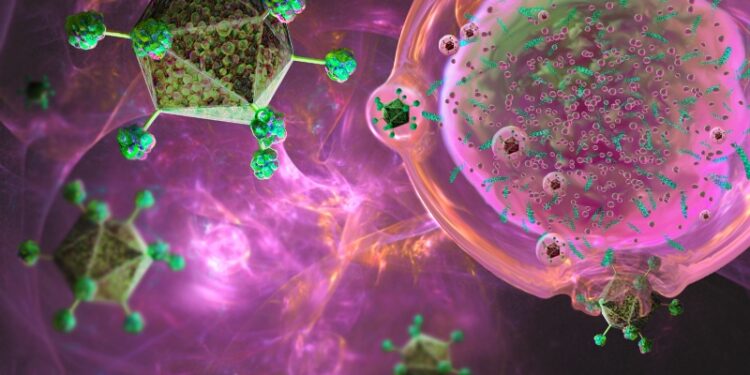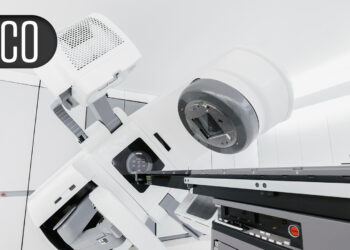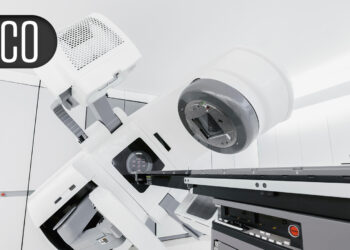Chimeric antigen receptor (CAR) T-cell therapy has transformed the treatment of refractory or relapsed leukemia and hematologic malignancies, particularly over the past decade. Despite its unprecedented success, challenges regarding safety and efficacy, especially in solid tumors, continue to drive innovation. The latest research explores fourth- and fifth-generation CAR T cells with rapidly evolving clinical applications.
The US Food and Drug Administration (FDA) approved the first CAR T-cell therapies in 2017 for diffuse large B-cell lymphoma and acute lymphoblastic leukemia in pediatric and young adult patients. While these therapies have marked a milestone in hematologic oncology, relapse rates remain as high as 60%, and severe adverse effects, including cytokine release syndrome, remain a concern.
Next-Gen CAR T-Cell Therapies
First-generation CAR T cells feature an extracellular antigen recognition domain linked to a single intracellular signaling domain and have limited persistence in the body. Second-generation CAR T cells incorporate costimulatory domains (CD28, 4-1BB, or OX40), improving their expansion and durability.
Currently, only second-generation CAR T-cell therapies have been approved by the FDA and European regulatory agencies. However, variability in efficacy and side effects has driven research into third-generation CAR T cells, which integrate two costimulatory domains to enhance the antitumor response. Clinical studies suggest that these offer greater specificity and durability.
Fourth-generation CAR T cells, also known as “armored CARs” or T cells redirected for universal cytokine killing, release cytokines such as interleukin-12 to enhance the immune response. These cells recognize multiple tumor antigens, thereby improving precision and reducing adverse effects. Acting as “mini pharmacies,” they deliver drugs directly into tumors, increasing efficacy while minimizing systemic toxicity. Designed for solid tumors, their potent cytotoxicity requires careful safety assessment.
Fifth-generation CAR T-cell therapies are still in the early stages of development. Experts anticipate that by 2030, advanced cell therapies, including CAR T, will represent 10% of hospital treatments in Europe.
The success of CAR T-cell therapy in leukemias and lymphomas contrasts with its limited efficacy in solid tumors. These barriers include an immunosuppressive tumor microenvironment, tumor heterogeneity, lack of specific targets, and deregulated immune control mechanisms.
Progress is being made to overcome these barriers. For example, CAR T cells targeting specific proteins are currently being developed in both preclinical and clinical studies. Modulating the tumor microenvironment through armed CAR T cells, as well as using combination therapies with immune checkpoint inhibitors, are among the innovative strategies being evaluated. These approaches are being investigated in various types of cancer, including breast and lung cancers and glioblastoma.
The Vall d’Hebron Institute of Oncology (VHIO) and Hospital del Mar Medical Research Institute (IMIM) in Barcelona, Spain, have developed a novel CAR T-cell therapy. They will test this therapy in a phase 1 study to evaluate its efficacy against tumors driven by human epidermal growth factor receptor 2 (HER2) overexpression. This next-generation CAR T-cell therapy has already been tested in preclinical models of HER2-positive breast cancer derived from patients who have shown a complete, durable, and safe antitumor response.
Another long-term study, published in February in Nature Medicine, provided promising results on the efficacy of CAR T-cell therapy in treating neuroblastoma, an aggressive type of childhood cancer. The study followed up 19 children treated with this therapy for more than 18 years, demonstrating that these therapies could transform the treatment of solid tumors. One patient has maintained cancer remission for over 18 years without the need for additional treatment. Low levels of CAR T cells were detected in the patients, with greater persistence in long-term survivors.
These advances offer a promising outlook for improving the efficacy of CAR T-cell therapies in treating solid tumors.
CAR T in Autoimmune Diseases
CAR T-cell therapy has also proven to be a promising option for treating complex autoimmune diseases that are difficult to manage with conventional therapies. In the case of systemic lupus erythematosus, clinical trials have demonstrated that anti-CD19 CAR T cells are effective in eliminating pathogenic B cells, with sustained remissions in 80% of treated cases. A study in young patients with severe lupus also showed significant improvement in symptoms and remission of internal organ involvement.
For systemic sclerosis, several ongoing investigations are exploring the potential of CAR T cells to treat this complex autoimmune disease. These studies are also evaluating CAR T efficacy in multiple sclerosis that is resistant to conventional treatments. In autoimmune neuropathies, remission has been achieved in a patient with stiff-person syndrome. Additionally, at the Hospital Clínic de Barcelona in Barcelona, a man with a neurological autoimmune disease that had caused blindness in one eye has remained relapse-free for 14 months after treatment.
Despite these promising results, experts caution that more evidence is needed, as clinical trials are still in their early stages.
Ongoing Spanish Clinical Trials
Other innovative clinical trials underway in Spain are expanding the potential of this therapy for the treatment of other types of cancer. VHIO and IMIM are evaluating a new CAR T-cell therapy in a phase 1 trial for tumors driven by HER2 overexpression.
The CARxALL clinical trial, launched in 2023 in Barcelona, is the world’s only study investigating CAR T-cell therapy targeting CD1a in patients with cortical T-cell acute lymphoblastic leukemia. It has already treated its first patient, marking a major step in advancing the treatment of this rare leukemia.
Additionally, an animal trial is underway to create the first European CAR T for glioblastoma, a highly aggressive brain tumor. This project, being developed by the 12 de Octubre University Hospital in Madrid, aims to generate CAR T-cell therapy targeting the P324 protein, potentially offering a crucial advance in the treatment of this difficult-to-treat cancer.
Efforts for Improved Effectiveness
Beyond CAR T research, technological innovations are rapidly advancing to enhance production, efficacy, and accessibility. Researchers at the University of California, Los Angeles, have developed a functionalized graphene oxide platform that enhances CAR T expansion and activation up to fivefold compared with conventional methods.
This approach optimizes T-cell receptor signaling, reduces reliance on exogenous cytokines, and better mimics physiological immune interactions, potentially improving the therapeutic efficacy.
New approaches are being explored to replace the traditional retroviral vectors. CRISPR/Cas9 gene editing allows the precise integration of genetic material into T cells, improving safety while preserving CAR function. Synthetic NOTCH receptors offer tighter control over CAR expression, and engineered therapeutic genes are designed to activate in response to tumor-specific signals.
Other Technologies
Researchers at the Institute of Biomedicine of Sevilla, Sevilla, Spain, have developed CARTemis-1, a CAR T-cell therapy for multiple myeloma with enhanced manufacturing processes. This therapy improves CAR T quality, increases the generation of memory cells for a more durable immune response, and reduces markers of cell exhaustion.
The T-charge platform, created at the VHIO, shortens CAR T manufacturing time to < 2 days, accelerating treatment initiation. This approach minimizes cell fatigue, enhances antitumor activity, and enables lower dosing, with response rates of 75%-80% in patients with non–Hodgkin B-cell lymphoma.
Artificial intelligence (AI) is also transforming CAR T-cell therapy by identifying new tumor targets, designing more precise CAR receptors, and optimizing patient selection based on genomic and clinical data. AI-driven advancements have also streamlined production, reduced costs, and improved therapy quality.
This story was translated from El Médico Interactivo using several editorial tools, including AI, as part of the process. Human editors reviewed this content before publication.
Source link : https://www.medscape.com/viewarticle/next-gen-car-t-cell-therapy-expanding-beyond-blood-cancers-2025a100077o?src=rss
Author :
Publish date : 2025-03-26 11:11:00
Copyright for syndicated content belongs to the linked Source.














